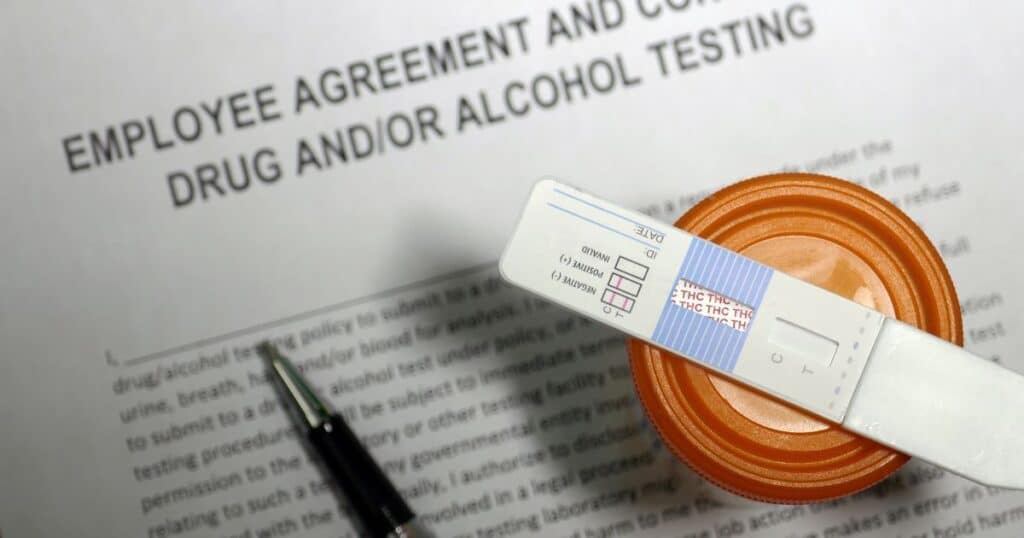With the start of a new year, several states have implemented significant changes to their cannabis laws. These changes will greatly impact the industry and consumers alike. From Oklahoma’s use of “secret shoppers” to Virginia’s shift in regulatory oversight, there are many updates that are worth exploring.
The introduction of these new regulations highlights the continuous evolution and growth of the cannabis industry.
As more states legalize cannabis for medical and recreational use, it is crucial to have comprehensive regulations in place to ensure the safety and quality of products, as well as protect employees and consumers. These changes also have the potential to shape the future of the industry and set a standard for other states to follow.

New Regulations in Colorado
One of the most significant changes in Colorado’s cannabis regulations is the implementation of “use-by” date labeling for marijuana products as reported by Westword. This new requirement aims to increase consumer safety and ensure that they are consuming fresh and potent products.
However, this change has not been without controversy. Some stakeholders have pushed back against the timeline for adoption, arguing that it is too short for businesses to comply with. This brings up important questions about the balance between consumer safety and the impact on businesses. It will be interesting to see how this change plays out and if any adjustments are made in the future.
Multiple Regulatory Updates in Oklahoma
Oklahoma’s medical marijuana industry has seen multiple regulatory updates take effect as of January 1st, with the goal of improving the industry and ensuring compliance. One notable change is the authorization for “secret shoppers” to discreetly regulate compliance at cannabis businesses. This will help ensure that businesses are following all regulations and maintaining high standards.
In addition, licensed marijuana labs now have the option to go through a voluntary validation process, showing their commitment to quality and adherence to regulations. This not only benefits consumers but also helps legitimize the industry as a whole.
The new laws also address the certification requirements for workers in the medical cannabis industry. In order to maintain employment, individuals must now obtain identification cards from OMMA and meet minimum standards. This ensures that those working in the industry are knowledgeable and compliant with regulations.
House Bill 4056 directs certain entities to provide recommendations, standards and operating procedures to the OMMA. It also directs the OMMA to promote rules, requiring licensed medical marijuana testing labs to comply with the rules as reported by Koco 5 News.
New Agency Overseeing Virginia’s Medical Marijuana Program
As of January 1st, Virginia’s medical marijuana program is being overseen by a new agency, the Virginia Cannabis Control Authority. This transition from the Virginia Board of Pharmacy to the CCA is part of a larger effort to streamline and improve regulations surrounding medical cannabis, reports 13NewsNow.
The CCA’s primary purpose is to serve as an expert resource on public health and cannabis, ensuring that the medical marijuana program is running smoothly and in accordance with state laws. This includes overseeing licensing, conducting inspections, and implementing regulations for dispensaries, cultivators, and other businesses involved in the industry.
The CCA also has the potential to pave the way for recreational cannabis in Virginia. Although it was originally planned for legalization to begin on January 1st, it has been delayed due to the failure of complementary sales legislation to pass. However, it is expected that lawmakers will continue to work towards this goal in the coming year with the help of the CCA.
Nevada’s Possession Limits and Industry Expansion
Nevada’s marijuana laws just got a major update with the new year. As of the New Year, adults are now allowed to possess up to 2.5 ounces of cannabis for personal use, more than double the previous limit of one ounce. With concentrates, the limit has also increased from one-eighth of an ounce to one-quarter of an ounce.
This significant change is a result of the large-scale marijuana reform bill signed into law by Governor Joe Lombardo in June. The new legislation not only increases possession limits but also allows businesses to expand their operations and serve both recreational and medical cannabis patients without needing separate licenses.
Additionally, the new law broadens eligibility for participation in the market by people with prior felony convictions. This provides opportunities for individuals who may have been previously restricted from participating in the industry to now do so.
However, it’s important to note that medical cannabis licenses will no longer be issued or renewed unless the applicant is located in a jurisdiction that has opted out of permitting adult-use facilities.
California and Washington Work-Related Protections for Cannabis Users
The new year has brought significant changes regarding cannabis-related workplace protections in both California and Washington state. With the implementation of new laws, job applicants and employees now have greater protection when it comes to their lawful use of cannabis outside of work.
In California, employers are now prohibited from asking job applicants about their past cannabis use. This means that an employer cannot deny employment or ask for information regarding prior marijuana use during the hiring process. Additionally, most employers are also barred from taking action against employees for the lawful use of marijuana outside of work.
Similarly, in Washington, a new law has been implemented to protect workers from employment discrimination based on their lawful use of cannabis. This applies to job applicants and prohibits employers from using an individual’s marijuana use as a basis for hiring decisions.
These laws aim to provide individuals with the same level of workplace protection for their cannabis use as they would have for other legal substances, such as alcohol. They also recognize that employees have a right to privacy and should not face negative repercussions for engaging in lawful activities outside of work.
However, there are some exceptions to these policies. In California, the laws do not apply to workers in the building and construction trades or those that require federal background checks and security clearances. In Washington State, employers can still maintain drug-free workplaces and prohibit cannabis use by employees after they are hired.

As we enter a new year, it’s clear that the cannabis industry is ever-changing and evolving. With new laws and regulations being implemented in various states, we can see how the landscape of the cannabis industry is constantly shifting.
From Virginia’s potential for recreational legalization to Nevada’s increase in possession limits, these changes are shaping the future of the industry.
And with California and Washington State leading the way in protecting workers who use cannabis outside of work, we can expect to see more progress and advancements in workplace policies for cannabis users.
As the industry continues to evolve, it’s exciting to think about what other changes and developments may be on the horizon. So, let’s keep our eyes open and stay informed as we witness the growth and evolution of the cannabis industry.
Keep updated on all the latest news and updates in the Cannabis industry here at Beard Bros Pharms by signing up for our Friday Sesh Newsletter here. Always Dank and Never Spam!

















